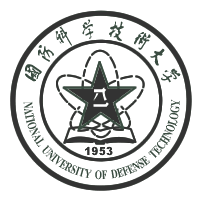Data Intelligence and Security Analysis (DISA 2018)
Scope
Data Intelligence refers to the processing, analysis and mining of massive data based on the technology of artificial intelligence, such as large-scale machine learning and deep learning. The most valuable information and knowledge contained in the multi-source and heterogeneous data are extracted and fused to make the data "intelligent". Huge amount of information in the landscape of security analysis need to be dealt with urgently, and they are keeping grow rapidly. Billions of malicious samples and darknet data, leaked data, emails attachments, DNS queries, HTTP requests, and large amount of software implementation vulnerability call for more precise and effective solutions to detect and predict these threats.
Data intelligence are able to help researchers analyze data from multi views which are crucial to many aspects of security, from analytics and intelligence support, to training automated classification and reasoning techniques. It could help providing a set of useful analytic and decision-making techniques that are being leveraged by an ever-growing community of practitioners, including applications with security-sensitive elements. However, while security researchers often utilize techniques to address problems on their own community, data intelligence researchers develop techniques for big-data analytics applications; neither community devotes much attention to the other. These two communities generally focus on different issues. While these two fields do meet, some meaningful problems will be discovered and new technology may be designed. Researchers working in the intersection have already raised many novel questions for both communities. Therefore, we need to design new data-driven techniques and rethink our existing solutions to take advantage of related technology of data intelligence to improve security analysis. The DISA Workshop aims to increase potential collaborations and partnerships by bringing together academic researchers and industry practitioners from Data Intelligence and Security Analysis with the objectives to present updated research efforts and progresses on foundational and emerging topics of DISA, exchange new ideas and identify future research directions.Relevance
New technologies must be developed to mine useful knowledge from large data to help detect, discovery and prevent attacks and threats. Therefore, Data Intelligence and Security Analysis (DISA) is proposed to address related problems.
Holding the DISA-2018 workshop in conjunction with IEEE-DSC 2018 will promote the technology related to data intelligence applied to the communities of security analysis, bridge the gap between data intelligent and security analysis, and then promote the common development of the two communities. This workshop, held in conjunction with the IEEE-DSC 2018 conference, will contribute to the conference by assembling active researchers in a wide range of disciplines (machine learning, data mining, artificial intelligence, privacy computing, and information security) to share their experiences on addressing various aspects of current challenges in DISA.WORKSHOP AREAS
DISA encourages topics related but is not limited to:
1. Machine Learning for Security
2. Security and Privacy Computing
3. Big Data Privacy Protection
4. Data System Vulnerability
5. Data Intensive Attacks
6. Anonymous Communication Protection and Detection
7. Knowledge Fusion for Security
8. Knowledge Discovery for Security
9. Big Data Security Analysis
PAPER SUBMISSION
All submissions should be written in English and submitted via our submission system: https://cmt3.research.microsoft.com/DISA2018. A paper submitted to IEEE DISA 2018 cannot be under review for any other conference or journal during the entire period that it is considered for IEEE DISA 2018, and must be substantially different from any previously published work. Submissions are reviewed in a single-blind manner. Please note that all submissions must strictly adhere to the IEEE templates as provided below. The templates also act as a guideline regarding formatting. In particular, all submissions must use either the LATEXtemplate or the MS-Word template. Please follow exactly the instructions below to ensure that your submission can ultimately be included in the proceedings.
IMPORTANT DATES
Acceptance notification:
Camera-ready copy:
Conference Date: June 18, 2018
ORGANIZATION
Workshop General Chairs
Zhihong Tian, Guangzhou University, Guangzhou, China
Steering Committee
PC co-Chairs
Qingfeng Tan, Guangzhou University, Guangzhou, China
Xiaojun Chen, Chinese Academy of Sciences, Beijing, China
Workshop Organization Chair
Dakui Wang, Chinese Academy of Sciences, Beijing, China
Program Committee
Bailing Wang, Harbin Institute of Technology, China
Jing Ya, Chinese Academy of Sciences, China
Hongzhou Sha, NetEase, China
Jianfeng Guan, Beijing University of Posts and Telecommunications, China
Chuang Zhang, Chinese Academy of Sciences, China
Yupeng Hu, Hunan University, China









